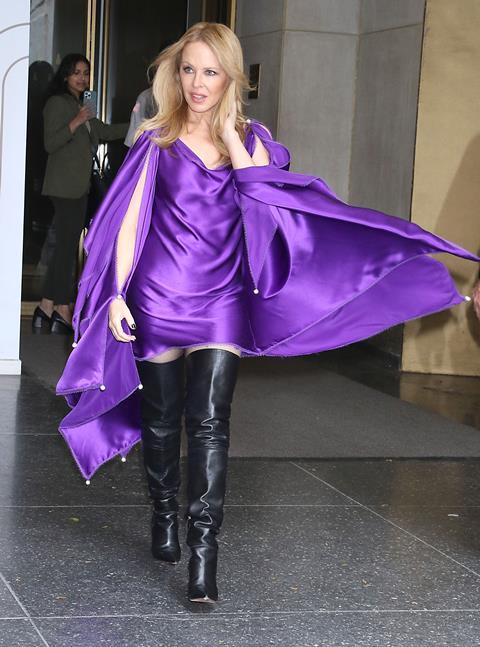Writer Alex Noel is impressed that Kylie Minogue, 55, isn’t defined by her age or relationship status, but asks: where are the similar role models in the Church?

This September, Kylie Minogue released her 16th studio album, Tension. More than 30 years into her career, this is her ninth number one album. The distinction this time is that at 55, she is being discovered by a whole new generation of young people who give little thought to her age. She’s also set to break America for the first time. In an interview for Rolling Stone magazine, Kylie credits the refreshing attitude of the new generation for her current success.
I admire Kylie. She’s weathered the storms of life from heartbreak to illness and come back from career setbacks and criticism. She’s never been afraid to adapt and try new things. Being single and childless doesn’t define her, in fact we hardly notice. There’s just no stopping her. I want to be like that when I grow up.
Being single and childless doesn’t define her, in fact we hardly notice.
There are lots of women like Kylie in the public eye, who are in their 50s and beyond and are clearly thriving. But when I look for similar role models in the Church, I often draw a blank. So… where are they?
Not long ago, already disquieted by the lack of role models I could relate to, I met with the leader of the large inner city church I attended. I asked him what place there was for someone like me - a single woman without children, approaching 40? He drew a blank; he said he would need to think about it.
In the hope of getting some insight, I attended some events exploring singleness at another big city-centre church. When the panel invited comments, I raised a point about the compounding impact I’d noticed that age (and ageism) had on the challenges of being single in the church. They fumbled and couldn’t really answer me.
Read more on relationships
The dream that turned a widow’s grief into a heavenly story of hope
This Marriage Week: the seven things to remember when working on your relationship
He’s just not that into you: the advice I wish someone had given me when I was younger
These experiences may be limited to certain settings, but they communicated the message that while it’s normal to be single in your 20s and 30s; singleness becomes more problematic in the Church when you cross over into the second half of your life. That’s when the potential for marriage and children seemingly diminishes - there are fewer obvious ways to fit in.
Of course, there is nothing wrong with getting married or having children. Though contentedly single, I haven’t written them off as possibilities at all. What jars is that I’ve found them held up as the embodiment of Christian normalcy and an assumed goal for believers. As long as you stick to them, you’re fine. But if you don’t, there aren’t such obvious pathways - you’re not so easy to categorise. And in the Church at least, finding your place becomes untrodden ground.
They communicated the message that singleness becomes more problematic in the Church when you cross over into the second half of your life.
“Out there” in society, there seems to be increasing understanding of the different routes life can take. It’s a frustrating irony; Jesus, around whom our faith revolves, was a single person with no kids. Yes, he upheld marriage, and loved children, but he also offered a radical alternative for those who didn’t fit societal norms.
The early Church’s vision embraced those sidelined by a highly religious Jewish society: it welcomed the widows, the eunuchs and other marginalised groups. The Church was always intended as a community that dignified those that didn’t fit in. Centred around Jesus, it offered a new way; one of acceptance, validation and an extraordinary sense of purpose that society often denied. In doing so it demonstrated the vibrant reality of the abundant life possible through faith in Christ. I’ll be keeping my eye on Kylie, but I’m still looking for role models in the Church - who differ from the “norm” - to be given the platform and the mic.




































No comments yet